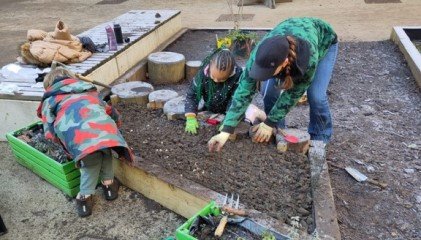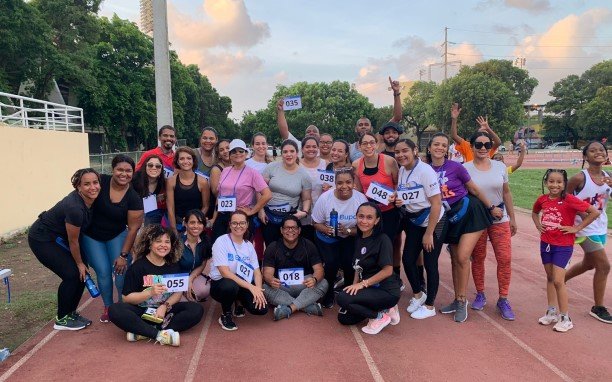
- The investment supports Bupa's ambition to improve people's health through restoring and regenerating nature
- The funding has been allocated after over 55,000 people across 24 countries took part in Bupa's global Healthy Cities challenge
Bupa, the international healthcare company, has committed to spend £2 million on projects that can restore and regenerate the natural environment in urban areas following the completion of its 2023 Healthy Cities programme by over 55,000 people around the world.
The programme aims to empower people to adopt healthy, long-term habits in their day-to-day lives, while preserving and regenerating urban and peri-urban green spaces. By completing a step challenge set via the Healthy Cities app, participants unlocked investment from Bupa into the restoration of the environment – from tree planting to help with reforestation and creating new urban forests, to building outdoor classrooms and gardens for schools and local communities.
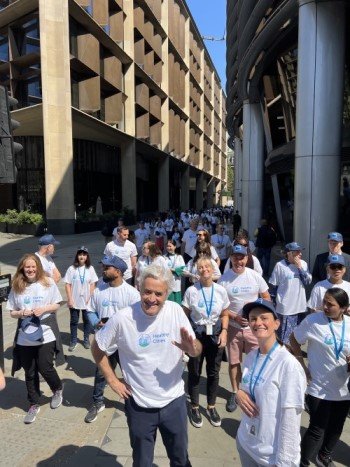
The programme was already successfully implemented across Spain in 2015, followed by Poland, Mexico and Chile, before being rolled out across all of Bupa's markets including Australia, New Zealand, the UK, Egypt, Dubai, and Hong Kong this year.
Over 55,000 people including Bupa employees, businesses and communities across 24 countries participated in the challenge between April and October which involved taking a minimum of 6,000 steps a day for a month, in line with physical activity recommendations from the World Health Organisation.
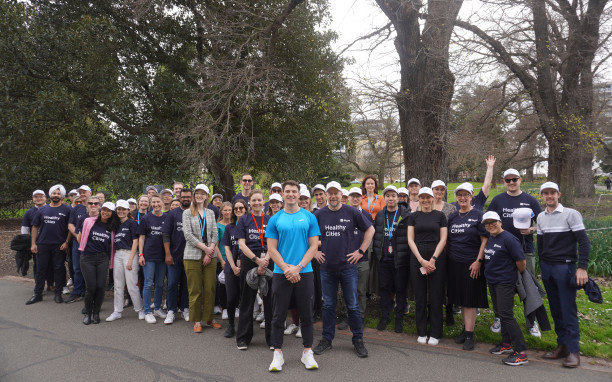
Creating greener and healthier cities can provide a win-win for both people and planet health. The World Economic Forum has actively called for greener cities, as trees provide shade and deflect radiation from the sun, while also cooling air and surface temperatures by moving water from the ground into the atmosphere. As well as slowing the warming effect of climate change, having greater access to nature has been shown to promote physical activity, which is linked to a more active lifestyle and better physical health. In particular, exercising outdoors has a positive effect on our mental state and can improve our overall health, especially our cardiovascular health and mood.
Bupa is working with local governments, NGOs and nature experts to ensure projects in different cities are beneficial to local ecosystems and residents. Through local environmental partnerships, Bupa is investing circa. £2 million in nature regeneration projects around the world. This includes:
- the creation of new forests in, for example, Australia, Mexico and Brazil
- providing green community grants to schools and charities in the UK
- clearing waste from coastal areas in Hong Kong; restoring damaged ecosystems in Spain
- regenerating areas damaged by wildfires in Chile; clearing plastic from the Nile in Egypt; and planting one tree for every Healthy Cities participant in Poland.
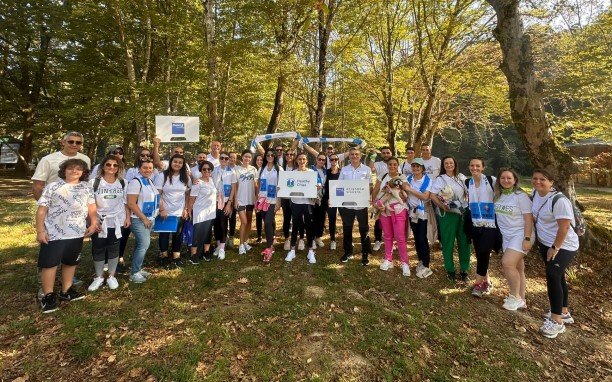
Nigel Sullivan, Chief Sustainability and People Officer at Bupa, said: “A core pillar of our sustainability strategy involves a long-term ambition for Bupa to play a leading role in improving people's health through the restoration and regeneration of nature. Our Healthy Cities programme is an important part of achieving this, enabling us to engage thousands of people in the cities Bupa operates in and encouraging them to get involved in an initiative that can benefit both their health and the health of the planet.
“We've had great participation in our first global rollout of the programme, with over 55,000 people worldwide taking part this year. Now it's our turn to deliver on our promise to reward their efforts with investment in restoring natural ecosystems, which could indirectly support the health of many more people across the world. We're also getting ready to build on the success from this year through Healthy Cities 2024 so that we can empower even more people to take an active role in their health and wellbeing.”
Notes to editors
About Bupa
Bupa's purpose is helping people live longer, healthier, happier lives and making a better world. We are an international healthcare company serving over 43 million customers worldwide. With no shareholders, we reinvest profits into providing more and better healthcare for the benefit of current and future customers. We directly employ around 82,000 people, principally in the UK, Australia, Spain, Chile, Poland, New Zealand, Hong Kong SAR, Türkiye, Brazil, Mexico, the US, Middle East and Ireland. We also have associate businesses in Saudi Arabia and India.
Our sustainability strategy
As a healthcare company we have an important role in addressing climate change, and a responsibility to act now. In 2021, sustainability was included in our corporate strategy, and in 2022, we launched our sustainability strategy, outlining our ambition to help tackle this challenge, and ‘making a better world’ for colleagues, customers, communities and wider society.
Our strategy has a clear net zero goal by 2040 underpinned by 1.5 degree aligned Science Based Targets (SBT) validated by the SBT initiative (SBTi), and an interim scope 1&2 2025 target. To set credible and ambitious targets we joined the UN-backed Race to Zero campaign, aligning our plans to tackle emissions with the Paris Agreement.
You can find out more on our sustainability strategy page.
About the Healthy Cities challenges
- The WHO has highlighted the importance for adults to limit the amount of time they're inactive and break up long periods of sitting by taking up physical activities.
- While these activities can vary in intensity, individuals should aim to be active on all, if not most, days throughout the week. The benefits include reducing symptoms of depression and anxiety, and preventing and managing diseases. The frequency and intensity of activities set as part of the Healthy Cities challenges, for example, walking 6,000 steps or 45 minutes a day, aim to help create habits of regular, daily physical activities and reduce the risks of being inactive.
- The app tracks progress by either monitoring movement or allowing individuals to manually add activities.
- The amount invested in each location is determined by local Bupa teams.
- The full list of countries that participated: China, Denmark, Egypt, India, Ireland, Singapore, South Africa, Switzerland, UK, Netherlands, Brazil, Chile, Dominican Republic, Ecuador, Mexico, Panama, Peru, Poland, Spain, Turkey, Miami Florida (USA), Australia, New Zealand and Hong Kong


